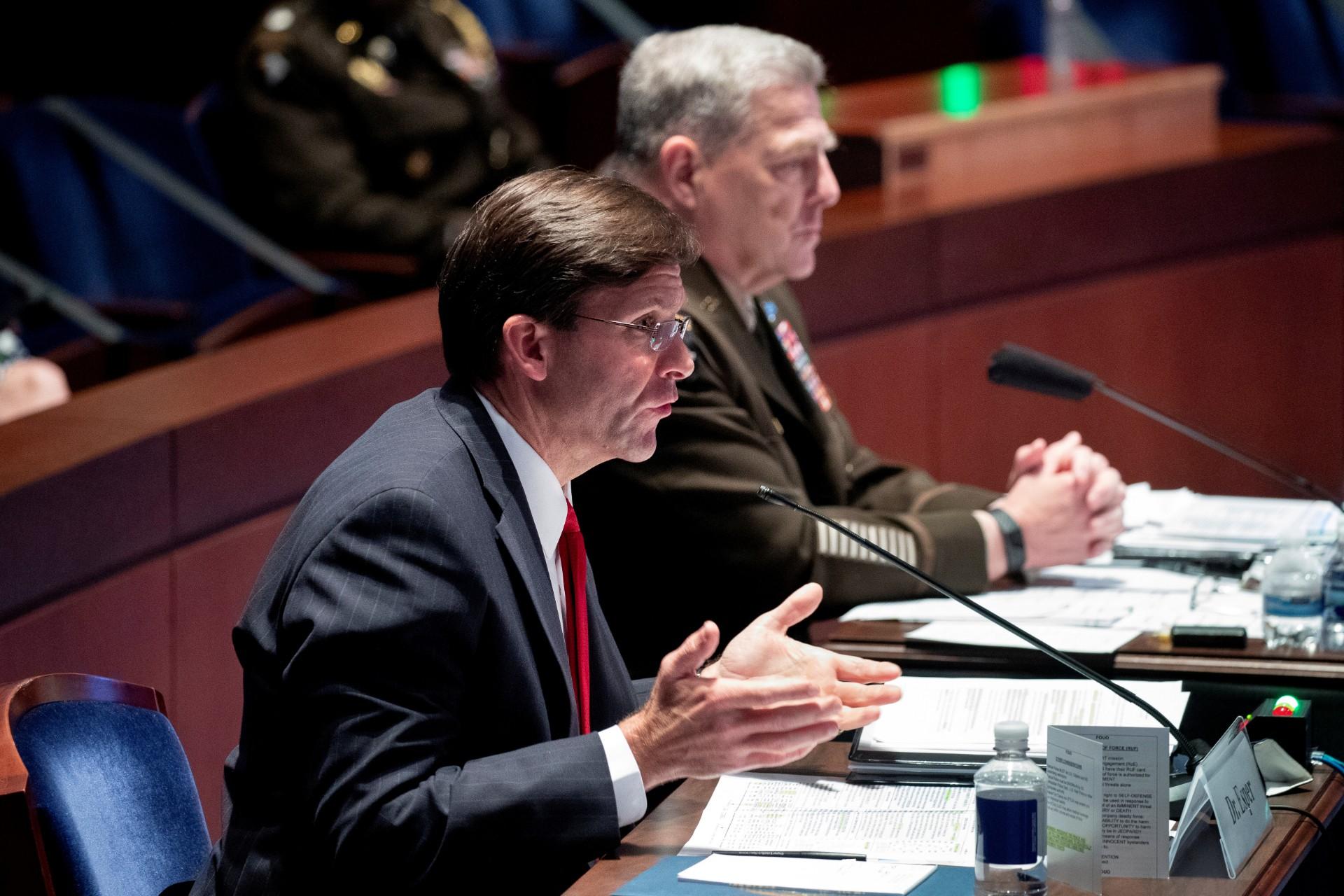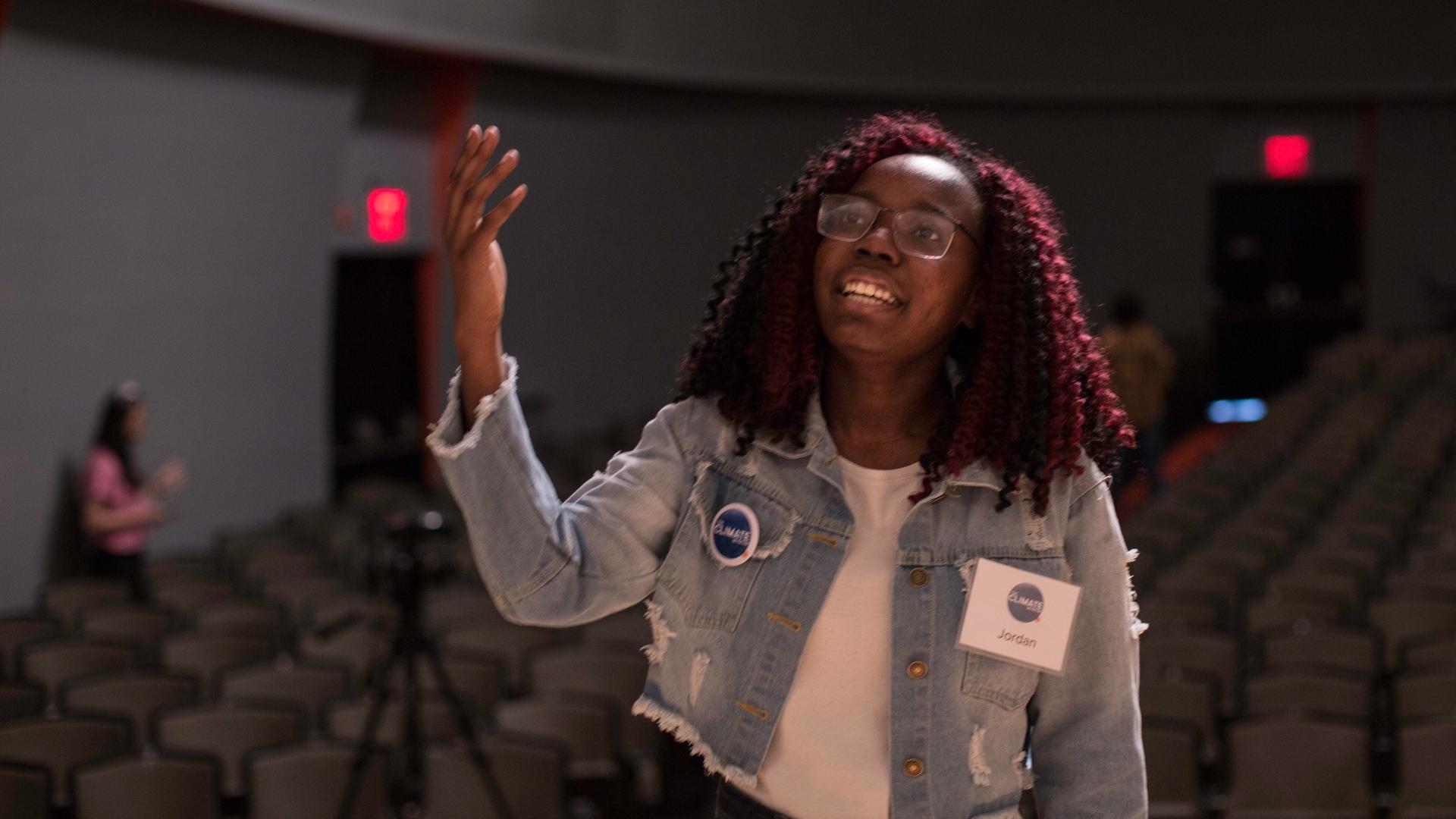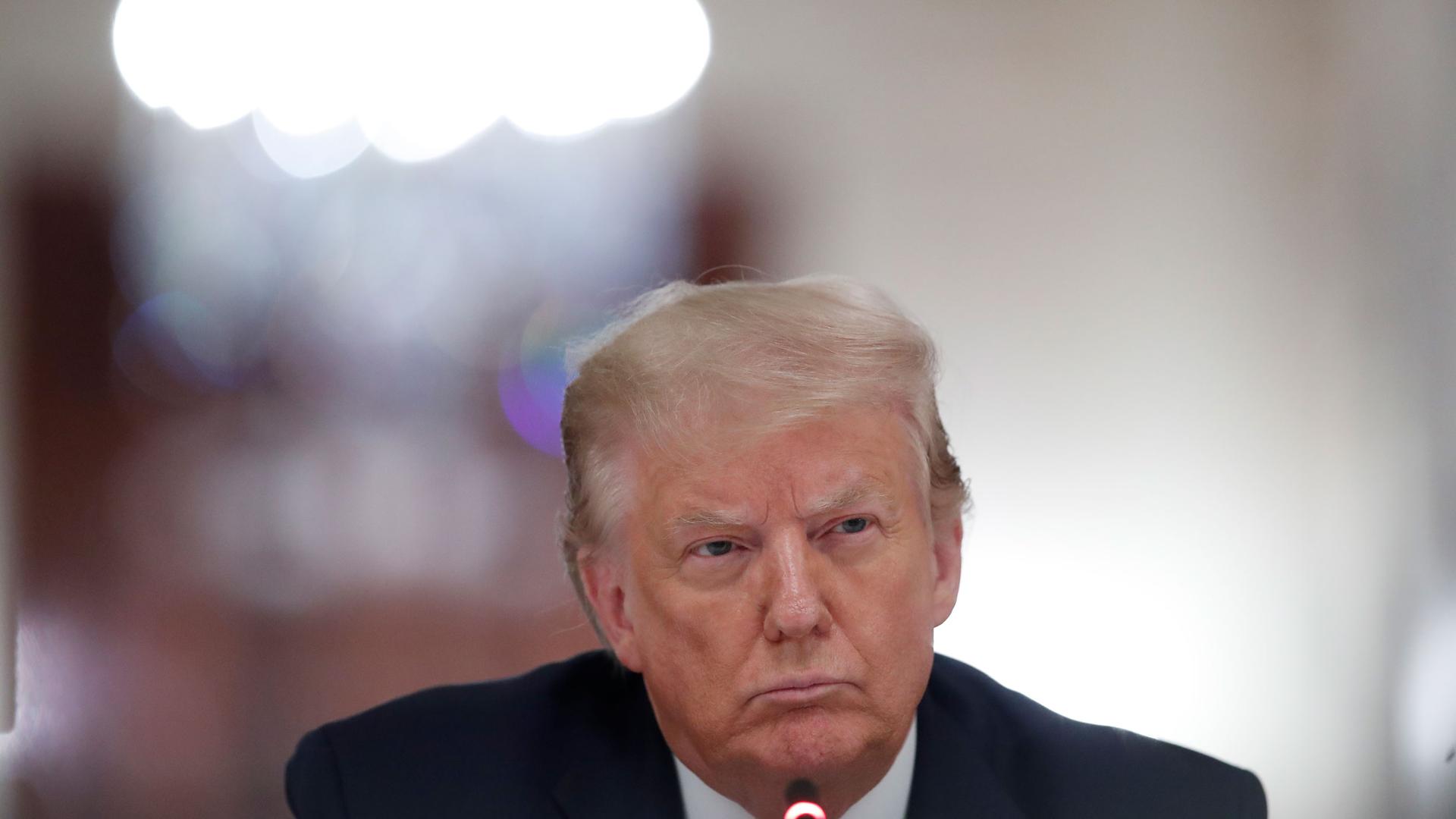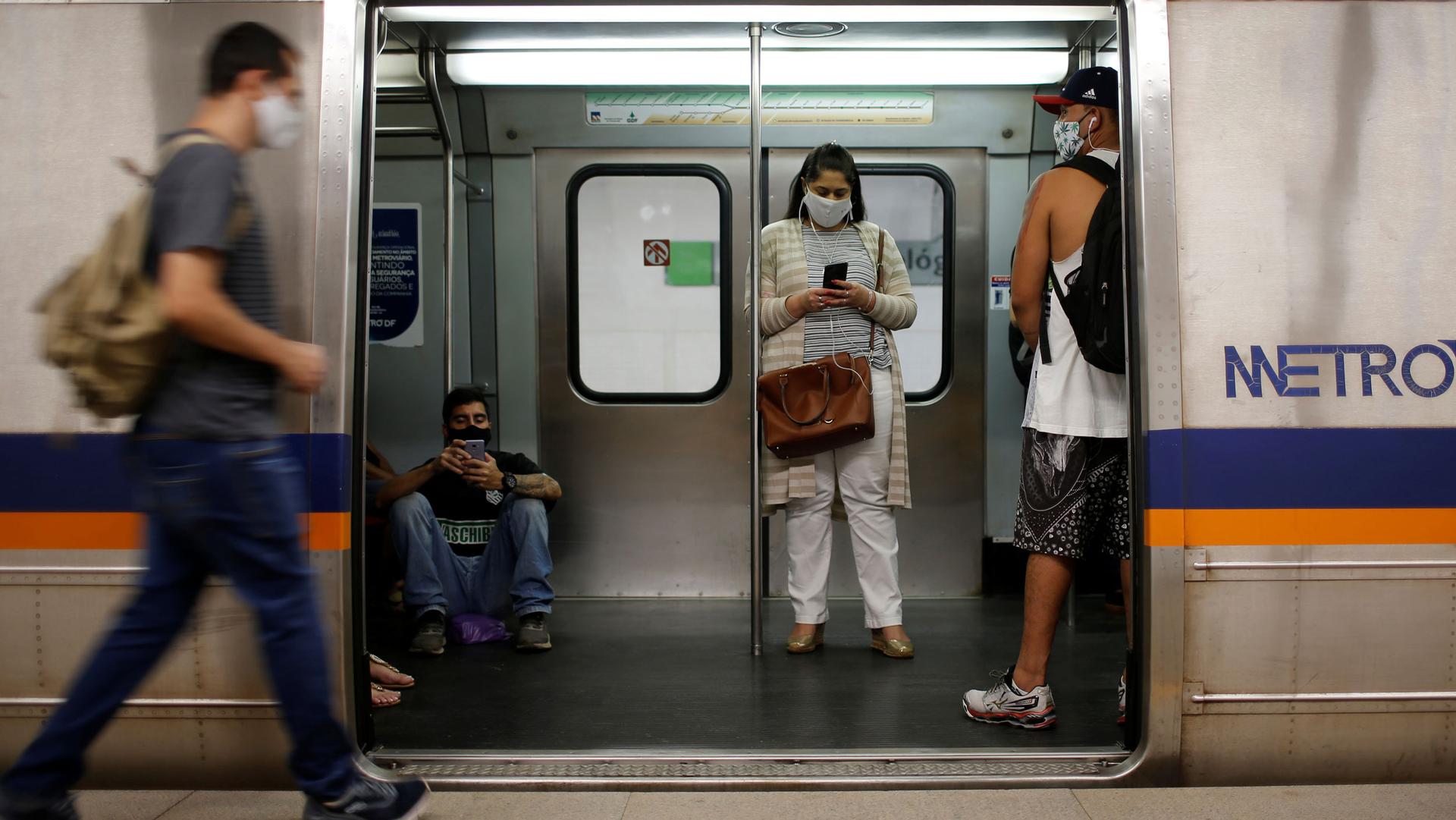WHO releases new guidelines, sends team to China; Elections in Singapore and Poland; Turkish court annuls Hagia Sophia decree
Passengers wearing protective face masks stand inside a train amid the coronavirus outbreak, in Brasilia, Brazil, July 8, 2020.
Top of The World — our morning news round up written by editors at The World. Subscribe here.
The World Health Organization released new guidelines yesterday acknowledging some reports of airborne transmission of the coronavirus. The announcement came after more than 200 scientists signed an open letter accusing the WHO of underestimating the possibility of airborne transmission among people in crowded, indoor settings. Dr. Anthony Fauci, director of the US National Institute of Allergy and Infectious Diseases, said yesterday that despite a dearth of evidence on airborne transmission, “I think it’s a reasonable assumption that it does occur.”
And, the WHO sent a team to China today to lay the groundwork for an investigation on the origins of the novel coronavirus. The virus is believed to have emerged in a wet market in Wuhan late last year. Two WHO experts will work with Chinese scientists to determine the investigation’s scope and itinerary.
Meanwhile, several countries are making additional moves to reopen. The UK government announced that starting today, visitors arriving in England from 58 selected countries will no longer be required to self-isolate for 14 days. The US and China didn’t make the list. And in France, the Eiffel Tower opened its summer terrace last night to visitors. DJs are scheduled to play every Thursday and Friday through the summer.
What The World is following
Voting is underway in Singapore amid the pandemic, and Poland is holding its presidential election on Sunday.
And, a Turkish court has annulled a 1934 government decree turning Istanbul’s Hagia Sophia into a museum. The ruling could pave the way for a move to convert the UNESCO World Heritage Site back into a mosque despite international warnings.
Tomorrow is the 25th anniversary of the Srebrenica massacre, in which Bosnian Serb forces killed about 8,000 Muslim men and boys during the Balkan conflict in the largest genocide to take place in Europe since the Holocaust. On The World today, we’ll be speaking to David Scheffer, who was US ambassador-at-large for war crimes issues from 1997 to 2001, about the uneven prosecution of those who’ve perpetrated atrocities.
Russian bounty allegations shine spotlight on what Trump admin knew and when

According to reports, senior White House officials were aware as early as the beginning of 2019 of classified intelligence indicating that Russia was secretly offering bounties to the Taliban for killing US troops. The World spoke with Mark Galeotti, a senior associate fellow at the British-based Royal United Services Institute, who says that if the allegations are true, they represent an astonishing escalation by the Russians.
“Up to now, essentially — yes, the Kremlin kills, but it kills people it regards as traitors. In other words, its own people who have turned against it. They have a very different calculus for the potential costs of going after outsiders and especially Americans. They would know there’ll be a massive political price tag on any dead Americans that could be ascribed to Russian machinations.”
Global network of young people writes poems to cope with climate crisis

Some people might find it naïve to talk about poetry as a climate solution, but the arts represent one of the more powerful ways that people transform deeply held worldviews and beliefs about the natural world, according to Julia Bentz, who runs the project Art for Adaptation, which looks at the relationship between the arts and climate change.
“The natural sciences alone are not capable of fully addressing the challenges that we’re facing in this time,” she said.
Access to art and poetry, said Bentz, can change the way someone thinks about nature, which can be quite compelling and promote thinking about transformational change in our society.
Bright spot
Something to ponder for your weekend — why are Linkin Park T-shirts all the rage in China right now? Our partners at Wired investigate. Enjoy.
In case you missed it
Listen: US Supreme Court rules Trump can’t block release of financial records

The US Supreme Court weighed in Thursday on the question of presidential power. The justices decided 7-2 that President Donald Trump cannot block the release of his financial records to prosecutors in New York. And, Taiwanese company Formosa Plastics is under fire for polluting waters near its factory in Louisiana. Also, the Fuji-Q Highland amusement park in Japan has put out a video telling people not to scream out loud to help prevent the spread coronavirus-carrying droplets. Instead, park officials are asking patrons to “please scream inside your heart.”
Don’t forget to subscribe to The World’s Latest Edition podcast using your favorite podcast player: RadioPublic, Apple Podcasts, Stitcher, Soundcloud, RSS.
